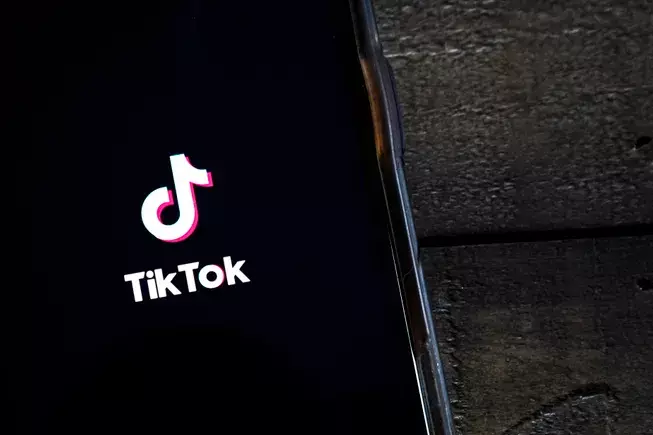As TikTok faces a critical juncture in its operations within the United States, the app’s fanbase is torn between pessimism and optimism. Recent government directives indicate that TikTok is preparing for a temporary unavailability in the U.S., a consequence of the newly enforced “Protecting Americans from Foreign Adversary Controlled Applications Act.” This law demands that TikTok, a platform owned by Chinese company ByteDance, either undergo a sell-off to an American company or cease operations entirely in the U.S. The unfolding scenario raises pressing questions about the intersection of technology, politics, and national security.
As the clock ticked towards midnight last Saturday, TikTok users began receiving notifications about the app’s impending unavailability. The Supreme Court’s recent ruling upheld the legality of the legislation, leaving TikTok with limited options. The government’s decision is purportedly anchored in national security—highlighting concerns of foreign influence and data privacy. This climate of suspicion against applications like TikTok is not entirely unfounded; security agencies have long scrutinized the potential of foreign apps to harvest sensitive user information.
However, critics question the motivations behind the sudden urgency to enforce these regulations. It is imperative to view this situation within the broader context of U.S.-China relations, especially considering the geopolitical tensions that have intensified in recent years. While the stated aim of the law is to protect American users from potential espionage, the actions taken against TikTok could also be interpreted as a maneuver in the larger strategy to counter Chinese tech dominance. Such actions reveal the complexities of international trade and technology, as well as the potential consequences for U.S. tech workers tied to these platforms.
In a twist of fate, the incoming presidential administration appears poised to re-evaluate the situation for TikTok. This prospective reprieve by incoming President Donald Trump, who has recently expressed a favorable view of TikTok, signifies potential negotiations that could lead to an alternative resolution. Conversations surrounding a possible 90-day window for TikTok to negotiate its status reveal the fluidity of political power and influence within the United States.
Trump’s change from being an adversary of TikTok to a potential supporter merits scrutiny. While his initial efforts to ban the app in 2020 were partly driven by dissatisfaction with China amid the COVID-19 pandemic, the current circumstances indicate a broader strategic alignment with domestic tech interests. Notably, Trump’s administration had encountered hurdles while attempting to justify the controversial ban, ultimately resulting in a repeal of the conditions put forth in 2021 by the Biden administration. This ongoing back-and-forth raises critical questions about the continuity of tech policy and the influence of political tides on business operations.
The legal implications surrounding TikTok’s status reveal a precarious balance between policy execution and political favoritism. Despite the new law mandating TikTok’s sell-off or closure, the potential for political intervention could turn the tide in favor of the app. The Biden administration’s hesitance to enforce the law may present an opportunity for Trump’s team to negotiate a resolution that circumvents immediate closure while adhering to legal expectations.
Moreover, TikTok’s CEO Shou Zi Chew’s impending attendance at Trump’s inauguration suggests a willingness on both parties’ parts to explore avenues for collaboration. Companies like TikTok must navigate a labyrinth of political affiliations and stakeholder interests, complicating the notion of “free market” solutions. TikTok’s position now hinges not just on legal compliance but also on the personal relationships and political alignments forged in high places.
As speculation continues regarding TikTok’s future in the United States, users can hardly avoid the sense of uncertainty that surrounds the app. Despite the current disruptions, predictions suggest that TikTok may soon find its way back into American app stores. This swift return could signal a turnover in tech policy that balances security concerns with economic interests, especially as digital platforms become vital facets of everyday life.
In this ever-evolving narrative, TikTok serves as a case study of how technology companies must intricately entwine their operational strategies with the dictates of political developments. Users and marketers alike may breathe a sigh of relief, as evidence suggests that TikTok, while temporarily sidelined, is likely to reemerge with a adapted narrative and perhaps a new paradigm of operation that accommodates both U.S. laws and international business dynamics.
The TikTok saga is emblematic of larger questions facing society today: how do we reconcile the opportunities of tech innovations with their potential risks? As TikTok navigates this legislative labyrinth, both the platform and its users are left to ponder what the future holds in this precariously balanced environment.


Leave a Reply